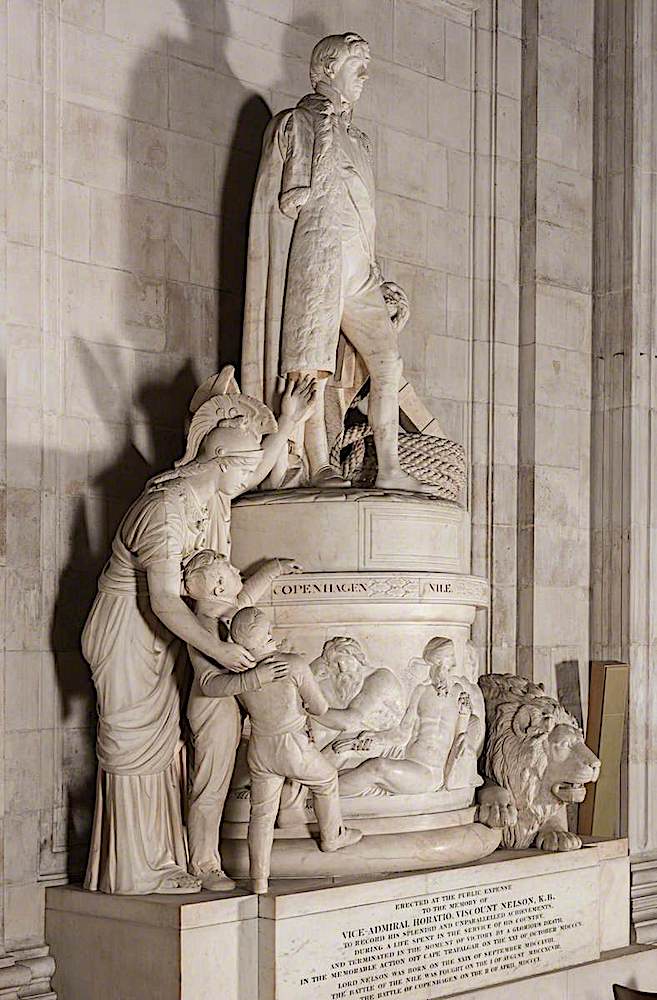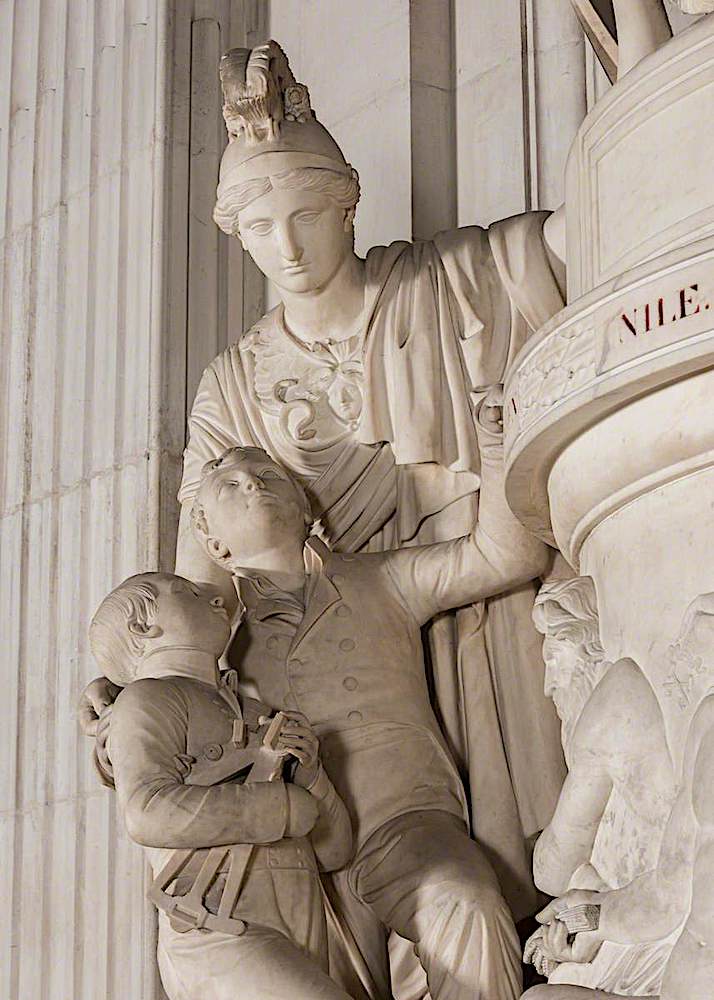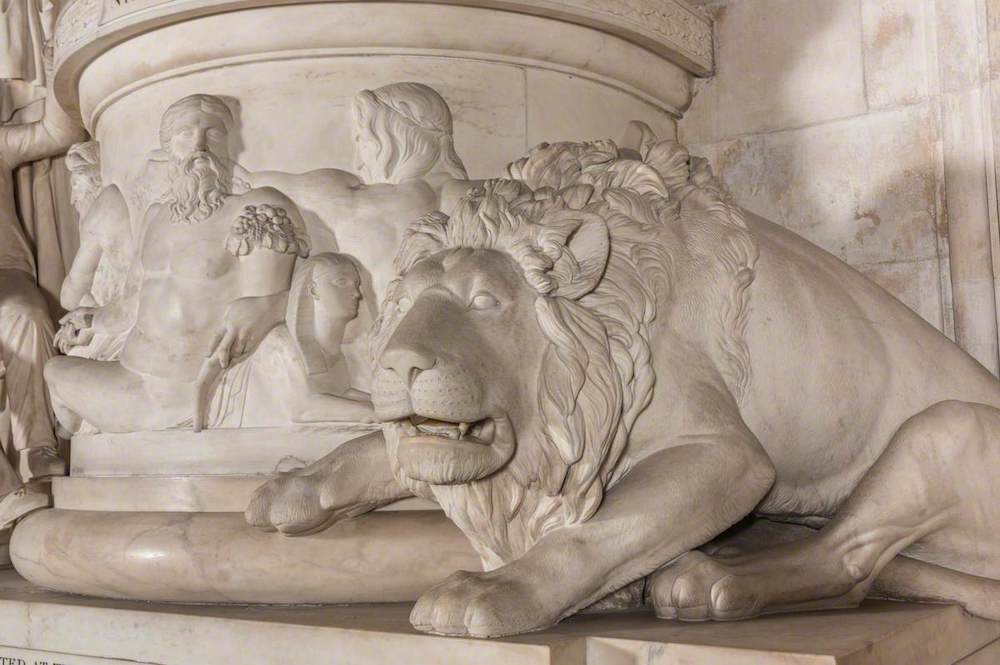

Monument to Vice Admiral Horatio (1758–1805), Viscount Nelson , by John Flaxman (1755-1826), in St Paul's Cathedral, London. The figure of Lord Nelson is seen more closely on the right. 1808-18 (see Read 87). Marble. H 500 x W 320 x D 125 cm (E). Photograph credit and measurements: St Paul's Cathedral (accession no.2491), commentary and formatting by Jacqueline Banerjee. Photographs downloaded from on the Creative Commons Attribution-NonCommercial licence (CC BY-NC). [Click on the images to enlarge them.]


Left: Britannia showing two boys the great hero. Right: Closer view of Britannia.
The Illustrated London News, when recalling Nelson's funeral in the expectation of similar ceremonies for the Duke of Wellington, was critical of the ensemble: "Nelson’s figure alone is worthy of Flaxman; the pedestal, with its sea-gods, its couched lion, and Britannia directing the attention of two naval scholars to Nelson, is a miserably poor allegory, unredeemed by its style of execution" (422). But the point of the allegory is perfectly clear, and the figures carry it, if not subtly, at least appropriately.

Closer view of the British lion on the pedestal.
The inscription on the base includes the words, "TO THE MEMORY OF / VICE-ADMIRAL HORATIO, VISCOUNT NELSON, K.B. / TO RECORD HIS SPLENDID AND UNPARALLELED ACHIEVEMENTS, / DURING A LIFETIME SPENT IN THE SERVICE OF HIS COUNTRY, / AND TERMINATED IN THE MOMENT OF VICTORY BY A GLORIOUS DEATH, / IN THE MEMORABLE ACTION OFF CAPE TRAFALGAR ON THE XXI OF OCTOBER MDCCCV.
Links to Related Material
- Nelson: The Legacy and Legend
- Horatio, Lord Nelson on Nelson's Column in Trafalgar Square
- The Battle of Trafalgar [Nelson Mortally Wounded] by John Edward Carew
- The Battle of Copenhagen by John Ternouth
- The Battle of the Nile by W. F. Woodington
- The Battle of Cape St. Vincent by M. W. Watson and W. F. Woodington
- Lions at the base of Nelson's Column
- Trafalgar Square
- Nelson Monument, the Bull Ring, Birmingham, by Richard Westmacott
- Nelson Monument, Liverpool, by Richard Westmacott
- Memorial to Lady Nelson, Littleham, Devon
Bibliography
Monument to Vice Admiral Horatio (1758–1805), by John Flaxman (1755-1826). Internet Archive. Web. 10 January 2024.
"Grand State Funeral of Lord Nelson." Illustrated London News. Vol. 21. 13 November 1852: 422. Internet Archive. Web. 10 January 2024.
Read, Ben. Victorian Sculpture. New Haven and London: Yale University Press, 1982.
Created 10 January 2024